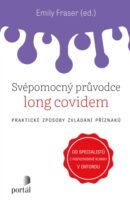I would like to invite you to read the texts, the common denominator of which set out the purposefulness and specificity of our multi-year ERIS network, rather than the subject matter of their authors. The European Research Institute of Social Work (ERIS) is an organization that, for over a dozen years, has been doing research for, and training candidates for, social professions. Its origins, and the heart of the organization, are tied to University of Ostrava (Czech Republic), and especially to organization President, Prof. Oldřich Chytil and a team of his close associates from universities and colleges of applied sciences from several European countries. All of them are united in a common goal: the creation of an interdisciplinary space and international exchange for the advancement of the theory and practice of social work in Europe. ERIS webjournals, and recently international editions of the Czech and Slovak Social Work, together with ERIS Spring Schools for European Master and PhD students, represent three key elements of this space that complement each other. The edition you are presented with proves that this space truly impacts and serves the purpose of ERIS. The common denominator of most of these texts is the connection of the scientific development of an author with one of the ERIS subspaces. For example, the reflection on happiness as an inspiring concept for social work research, was presented on one of the ERIS conferences, and today Iinvite you to deep theoretical reflection on the role of ‘positive concepts’ (including ‘happiness’) in the research and practice of social work. In three other texts, I find the effects of the inspirational power of subsequent Spring School debates. I remember their authors participating in one of the editions of this school as young researchers at an earlier stage of their scientific development. The remaining, no less intriguing texts, reflect on the subjects of our ongoing debates, where the social work identity or social work professionalization are among those most often and spontaneously nourished and reincarnated. And so, in this issue, the first two contributions, by Victor Otieno Okech (Slovakia) and Christian Spatscheck (Germany), are referring to the advancement of the theory of social work building as one of the key ERIS goals of our network. The first of the authors shares with the readers the results of his literary review of the role of social factors in the aetiology of antisocial behaviours in children and adolescents. He attempts to approximate selected concepts that he finds useful in defining and explaining the symptoms and causes of social disorders for social work practice. Given the diminishing popularity of deficitbased models in social work explorations, an indepth and up-to- date overview of the concepts that search for the sources of social problems in individuals, family or environmental shortcomings, may add to the debate on the relationship between explanations of social problems and the role of social work, and thus as such, overarching discourse on the social work identity. The second of the theoretical debates in this issue also directly refers to the problem of social work identity. Its author, Christian Spatscheck, rather contradicts and then strengthens interest in social work’s deficit-based approvals. In the article he presents the results of his own research on the ‘quality of life’ and related concepts, and in this context, the ability to consider possible ways of integrating previously mentioned concepts into the social work knowledge grid and practice frameworks. Because the significant dynamics of the social work identity discourse is a disagreement over the dominance of approaches in which service users are defined as those ‘in need’ of therapy, compensation, etc., the issue that is debated in this discourse presents a rather unique approach. According to the author, he promoted the concepts that ‘formulate a genuinely positive approach that directs the perspective of social problems towards the vision and the aims of a better society for all individuals and communities. In this article, the reader will find not only a solid review of literature focused on these concepts, but above all, convincing arguments for strengthening the ‘positive turn’ in social work development and promoting it as a profession focused on happiness and not on misery.
In the following two contributions, we see findings from two qualitative insights into the issue of professionalization of social work. Regardless of the fact that social work has been developing and continually changing its role in developed societies for more than a century, in each of our local contexts, the question of whether it is professional or not is a subject of heated debate. The results of the research by Lenka Divoká (Czech Republic) and Anna Jarkiewicz (Poland) enrich this debate, although each research does it in a different way. Lenka Divoká, in the article titled ‘The Professionalization of Child Protection in the Czech Republic’, presents us with answers to the research questions about how social workers describe the current state of their profession and how they describe the pathways to the enhancement of the professionalization of their work. Her point of view on professionalism is embedded in the sociological theories of professionalization. In her article, we find a thorough review which will undoubtedly be useful in the conceptualization phase of many empirical works focused on that issue. As a result of the qualitative approach to the analysis of the interviews with social workers employed at the department of child protection, the author presents a complex picture of the Czech social work profession as a ‘not fully fledged profession’, but a profession that not only strengthened its position on the labour market, but started to flourish and assimilate well within the current economic and political changes. On the other hand, the insight of Anna Jarkiewicz into the daily practice of one of the municipal social welfare centres in Łódź gives an interesting description of the interactional organization of social workers who support mentally disturbed social service users. Following the perspective presented in the article, professionalism is socially co-constructed in the process of ‘spontaneous, often casual division of work, defining and transforming professional roles and their mutual relations. All these processes overlap with the formal organization of work, but are rarely identical’ (Granosik, 2006:9). Such an understanding of professionalism, accepted for analyzing and interpreting data during the participant observation, has prompted the author to reconstruct both components of a socially constructed category of a ‘mentally disturbed client’, as well as the tactics and actions being employed as a result of diagnoses.
In the article of Tomáš Waloszek (Czech Republic), the controversial issues of research methodology can be taken as the auto-ethnographic statement of a young researcher who, in the presented speech, as if in the mirror, reflects the elements of the lived world of young researchers. Being involved in the methodological discourse of their local scientific community, they seek to find their own way to enrich their local research and international scientific debate. In selecting the issues considered by the author as ‘controversial’, and in the way of carrying a discussion, the readers are given an opportunity to read the representation and reflections of the author’s internal dialogue in the process of conceptualizing his research work. This article is interesting for at least two reasons. Firstly, it documents the questions and the intellectual struggles we observe in many researchers who are in the process of crystallizing their identity framework as researchers of social work issues during their Spring School participation. The approach presented in the article can be both an inspiration and a support. Secondly, the article’s rich tapestry of references to the Czech literature introduces international readers to locally conducted debates, which seems to be the undisputed additional value of this work. In another article, we are presented with considerations about links between structurally founded changes and incremental voluntary community initiatives. Shelley Briggs and Mark Foord (United Kingdom) explore these links using the example of the food bank movement. This is an insight into the phenomenon of self-organization of social forces responding to changes in the system of social services in the age of austerity (Farnsworth, Irving, 2011). Given the current state of the anti-state ideology and reductions in social spending, which together drive the substitution of state services by voluntary provision, the deliberations presented are beyond the confines of the Anglo-Saxon debate. The article introduces the reader to the issue of the emergence and the role of voluntarism in the neo-liberal social welfare system as well as the development of such a spectacular example of a voluntary organization that can be successfully appreciated and used in academic debate, practice, and in social work training conducted in other European countries. The deepening of the process of development of this movement in the context of socio-political changes shows an example of the analysis of changes in the social services system, which carefully and in multiple stages reconstructs the matrix of conditions leading to it. Interestingly, while movements such as the food bank are commonly seen as a form of crisis intervention for individuals and communities, the authors consider the potential of this movement to develop much further, even into emancipatory directions. In this edition, we also present two book
reviews. Monika Bosá (Slovakia) encourages you to familiarize yourself with the work of Eva Hvizdová and Beát Balogová, ‘Creative Industry of Selected Handicrafts in Eastern Slovakia’. It is a monograph presenting the ways of using selected handicrafts in the practice of social work, since ‘creativity is the key to innovative and interdisciplinary responses to global or local challenges’ (p. 8). The reviewer emphasizes the importance of careful analysis of the socioeconomic specifics of the Eastern Slovakia region, and the uniqueness of the empirical study of the mechanism of the renaissance of crafts in this region.
Doris Böhler (Austria), in the review of Patricia Hill’s Collins and Sirma Bilge book ‘Intersectionality’, focuses on a biographically meaningful meeting of two researchers, the result of which is presented in the book. The reviewer sees in the book not only ‘a good overview and discussion on the theory, perspectives and practice/research examples of the widely used concept of intersectionality as an analytical tool’, but also an infinite source of inspiration in the process of analyzing human conduct and understanding it in the context of the complex matrix of conditions used for social work research and practice.
Finally, under Research Notes, we have an insight into the actual research activities performed at the Faculty of Arts, University of Prešov as well as the presentation of one of the PhD research which has just been completed at the Department of Social Pedagogy of Faculty of Educational Sciences at the University of Łódź.
Beáta Balogová (Slovakia) presents the study into the social therapy status and status within Slovakian social work. Izabela Kamińska – Jatczak (Poland) informs us about her PhD study of the professional identity in the narratives of family assistants, undertaken at the Faculty of Educational Sciences at the University of Łódź. The research, regulated by the constructivist grounded theory method (Charmaz, 2006), in the course of the process of narrative interview collection and interpretation, reconstructs the elements of family assistants’ activities and identifies the process of singling out various characteristics, as the family assistants perceive them. The results of her research are arousing the appetite for more detailed insight into this section of Polish social work, especially since its other images have been, in the past, systematically presented in the ERIS publications (more in Gulczyńska, Marynowicz-Hetka, 2014, Jarkiewicz in this volume). Knowing the power of attachment to ERIS, we will soon hear more about these results either at the ERIS conference in Lille later this year (dedicated to ‘Social Work and Minorities’), or in Ostrava at the next Spring School in 17–20 of April, 2018.
Enjoy the read.
Anita Gulczyńska,
University of Łódź, Poland
References
CHARMAZ, K. 2006. Constructing grounded theory. A practical guide through qualitative analysis. London, Thousand Oaks, New Delhi: SAGE Publications.
FARNSWORTH, K., IRVING, Z. (Eds.). 2011. Varieties of Crisis. In: FARNSWORTH, K., IRVING, Z. (Eds.). Social Policy and Challenging Times: Economic Crisis and Welfare Systems. Bristol: Policy Press.
GRANOSIK, M. 2006. Profesjonalny wymiar pracy socjalnej. Katowice: Biblioteka Pracownika Socjalnego.
GULCZYŃSKA, A., MARYNOWICZHETKA, E. 2014. Participative Inquiry in the Field of Social Work. Socio-Pedagogical Perspective. In: HÄMÄLÄINEN, J., LITTLECHILD, B., ŠPILÁČKOVÁ, M. (Eds.). Research in Social Work in Europe Part I. Ostrava: University of Ostrava.






